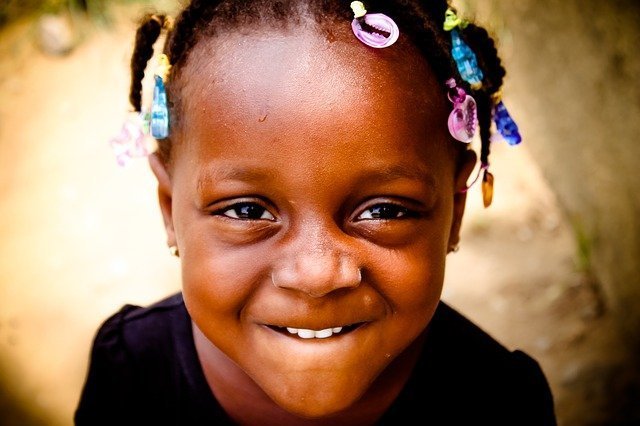At times I find blogs, articles and information that I think is worthy of reposting. Braulia Ribeiro from Brasil is the author and I think it is quite worth being read.
——-
Posted: May. 27, 2011 07:22 PM GMT
The idea that we can stir people’s emotions with the hardships of the mission field is almost a default in the heads of the ones who dare to leave their comfort zone to serve God. In order to make our work look better we paint an ugly picture of the people we are serving.
————————————————
It’s the climax of the missionary conference. The public is very international. Delegates from every continent on earth are present worshiping God at the top of their lungs. I am standing by a couple from Africa, well dressed using their tribal garments, turbans and jewelry.
We all have a sense of belonging together to the incredible Kingdom of God and his wonderful plan for humanity. Different languages and cultures are not a hindrance but a blessing. The worship time ends. We all sit down. A slideshow begins to promote a ministry. A sad song plays in the back and images of Africa appear in high definition. The typical photos of miserable black people fill the screen. Child after child with their rib cages sticking out, and poor moms with saggy breasts and deep eyes. Rampant poverty. Diseases. Hopelessness. Shame.
I lower my head. I cannot look at my African friends in the eyes anymore. The feeling of equality and value in the kingdom is gone. All there is left is rich and poor again, the chosen and the non-chosen, the ones who can give, and the ones who can only receive, bowing their heads.
At the end of the slideshow the giant ministry asks for prayer. In groups we are suppose to pray so they can use their powerful structure to lessen pain and stop infamy. We stand up; hold hands and I dare to ask to the beautiful African lady in front of me:
“How do you feel?”
“Unfortunately, – she says – “I had to become used to this, or I wouldn’t survive.”
A few years have passed since that conference. The mission’s world has gone a long ways since the sending-and-receiving-countries was the prevalent theory upon which we built our strategies. There is a worldwide awareness of the need we have of one another in order to accomplish the great commission.
However the general language we use to refer to the overall missionary need and to the target countries has not changed. Tribes are still poor and “primitive”. Africa is still portrayed as an immense bleeding wound. Muslims are still cruel moors. China is the clumsy giant that inspires fear and admiration at the same time.
Although many can argue that some of these stereotypes reflect somewhat the truth, in agreeing with the kingdom of God we have agreed to Imago Dei. The reality of the Image of God should be stronger than any earthly assumptions we have about peoples, tribes, countries, individuals. As our misconceptions about people guide us to depreciate, expect less, doubt and patronize, the understanding of God’s image and value in people takes us to another level of relationship. Expecting God’s dreams to be fully expressed in peoples of all cultures, we are led to respect, appreciation, free inter-change of ideas, mutual submission, real partnership, the kingdom.
I remember a pastor saying to me that most missionary letters he received could be called: “My sufferings”. The idea that we can stir people’s emotions with the hardships of the mission field is almost a default in the heads of the ones who dare to leave their comfort zone to serve God. In order to make our work look better we paint an ugly picture of the people we are serving. Admire how holy I am at the light of how terrible they are. This is the truth about the missionary who talks about the disgusting food he ate among the “savages”, and for the DTS leaders that stress at graduation how lost and terrible the students were before they went through his amazing school. (Wouldn’t it be better to show his friends how good were the young people that God trusted under his discipleship?)
Jesus was not like that. He could find beauty, faith and generosity where apparently there was none. He praised the Samaritans in front of the Jews who despised them, honored a woman in front of men who gave her no value, told the story of the unjust publican who reaches forgiveness when the Pharisee did not, bragged about a centurion who had more faith than the people of Israel.
The “target” people for Jesus were honorable, full of faith, courageous, and honest. Jesus drew people to mutual appreciation and respect.
Pity is not pious. Actually pity is a form of pride.
How do we change our anti-Jesus, lie-based cultural habits in talking about missions? I guess the rule is still the simple one taught by Jesus himself. What you don’t want done to you, don’t do to others. If you don’t want your own nation portrayed as a sinful satanic country dominated by pornography, capitalist pigs, and racist republicans… don’t stereotype your neighbor’s country, your neighbor’s culture, your neighbor’s moral behavior, your neighbor’s economy.
“Finally, brothers and sisters, whatever is true, whatever is noble, whatever is right, whatever is pure, whatever is lovely, whatever is admirable—if anything is excellent or praiseworthy— be those things used to describe those nations and tribes and individuals you want to proclaim the kingdom to. ”
Philippians 4:8







